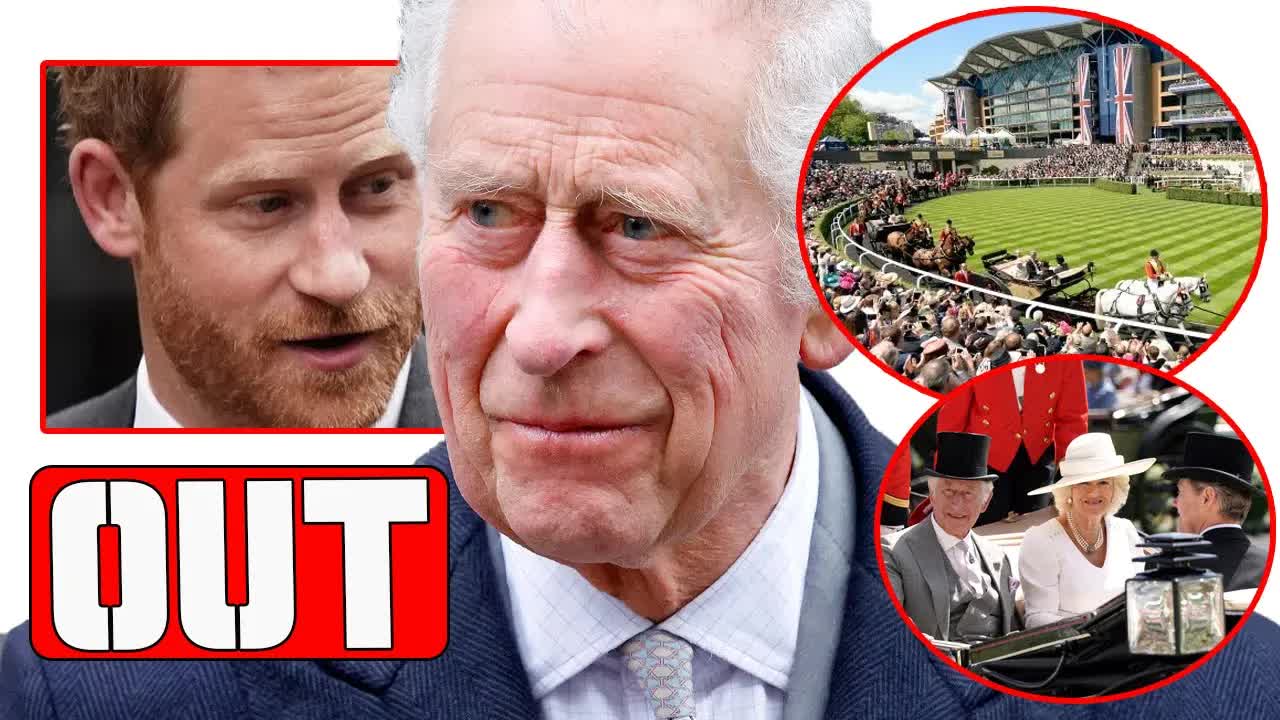Must Read
**Royal Ascot Protests: King Charles Faces Backlash Over Prince Harry’s Role**
The Royal Ascot Festival, a prestigious event in the British sporting calendar, was unexpectedly overshadowed by protests directed at King Charles III.
As the King made his way into the iconic Berkshire Racetrack, he was met with chants from a disgruntled crowd expressing their discontent over his support for Prince Harry's involvement in sports and veteran-related initiatives.
This backlash stems from the ongoing controversy surrounding Harry's departure from the royal family and the implications it has for the sporting community.
Dressed elegantly, with Queen Camilla in a striking electric blue outfit and the King donning a classic grey tailcoat, the couple's arrival was marred by the loud chorus of “we don't want Harry.”
This disruption shattered the typically festive atmosphere of Royal Ascot, highlighting a growing rift between the royal family and the sporting world.
Even other royals present, including Princess Anne and Zara Tyndall, could not escape the tension that hung over the event.
In an official message included in the event program, the King and Queen expressed their delight over a horse bred by the late Queen Elizabeth II winning last year.
However, this sentiment was clearly not shared by many attendees, who were more focused on their grievances regarding Harry's role in sports coordination.
The King's attempts to connect with family members, such as a friendly kiss for Zara, were drowned out by the chants, showcasing the depth of dissatisfaction among those in attendance.
Adding to the complexity of the situation, King Charles revealed that he would be absent for one day of the festival due to ongoing cancer treatment.
This revelation further complicates his position as he grapples with both personal health issues and the mounting pressure from the sporting community.
With the Royal Ascot featuring seven races daily and a staggering £10 million prize pool this year, the event has transformed into a focal point for broader discussions about the royal family's relationship with Prince Harry.
Tensions have been brewing for some time, as athletes and participants have increasingly voiced their concerns regarding Harry's involvement in high-profile sports events.
His criticisms of the royal institution following his exit have only intensified these feelings, placing the King in a precarious position as he seeks to balance tradition with the evolving sentiments of the public.
The protests at Royal Ascot have brought these underlying tensions to the forefront, revealing significant divisions within the British sporting community.
Many feel that the royal family's endorsement of Prince Harry undermines their trust and respect for the monarchy, leading them to use this high-profile platform to express their frustrations.
As a long-time patron of various sports organizations, King Charles now finds himself navigating a complex political and social landscape.
His efforts to maintain a united front and celebrate British athletic accomplishments are at risk of being overshadowed by the ongoing protests, which threaten to cast a pall over this esteemed event.
With the Royal Ascot Festival still underway, attention is likely to shift toward finding resolutions to these conflicts and understanding their implications for the royal family's standing within the sporting world.
Observers will closely monitor how the King manages this delicate situation, as the future of this beloved British tradition hangs in the balance.
The unfolding events at Royal Ascot serve as a poignant reminder of the intricate and often contentious relationship between the royal family and the public.
The willingness of athletes and participants to publicly voice their discontent underscores the challenges King Charles faces in reconciling the monarchy's traditions with the changing social and political dynamics of the nation.
As the festival continues, all eyes will be on the royal family to see how they address these challenges.
The potential for healing rifts and restoring a sense of unity and celebration—hallmarks of the Royal Ascot experience—will be crucial for the monarchy's future relationship with the sporting community.




































